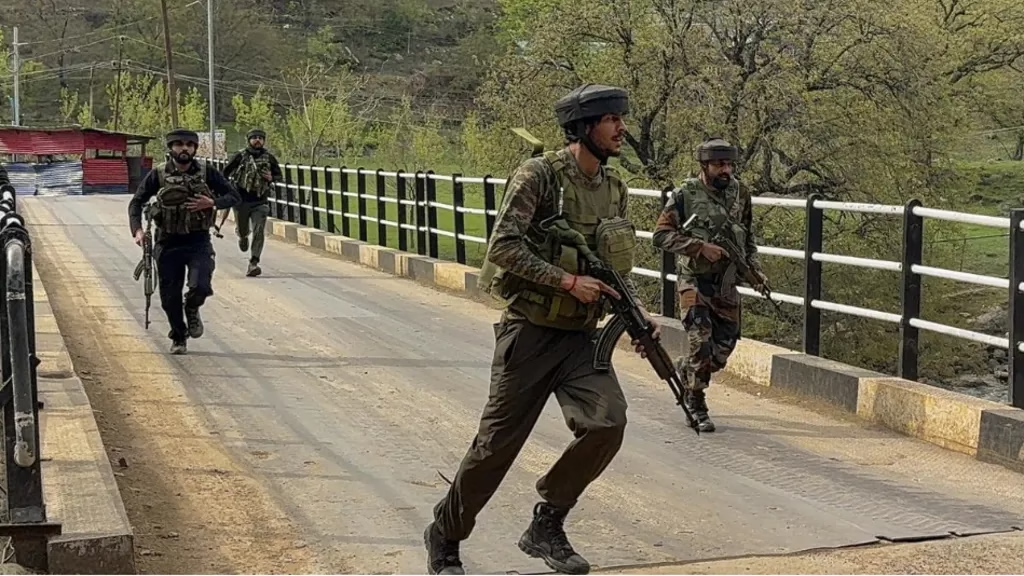Nestled amidst the emerald pine forests of Indian-administered Kashmir, the idyllic Baisaran Valley—often hailed as a “mini-Switzerland”—became the site of a horrific militant ambush on April 22, 2025, when gunmen opened fire on unsuspecting tourists, killing at least 26 people and wounding more than 30 others in one of the deadliest civilian massacres in the region in recent years
On the afternoon of April 22, visitors to a meadow resort near Pahalgam, a beloved getaway in the Anantnag district, were enjoying the valley’s serene vistas when four militants emerged from the surrounding woods and unleashed a barrage of gunfire at close range
Eyewitnesses described the attackers as disciplined and methodical, executing the assault in under five minutes before slipping back into the forest. The assailants targeted largely Indian nationals, shattering the region’s hard-won reputation for tourist-friendly normalcy that New Delhi has worked to promote since revoking Kashmir’s semi-autonomous status in 2019.
While no group immediately stepped forward, a shadowy organization calling itself “Kashmir Resistance” later claimed responsibility, declaring the attack a protest against perceived demographic changes wrought by New Delhi’s settlement policies.
Authorities have launched an extensive manhunt, deploying paramilitary units and tracking teams across the rugged mountain terrain in a bid to apprehend the perpetrators and forestall any copycat strikes.
Casualties and Human Toll
According to official figures, at least 26 tourists lost their lives, with injuries reported in excess of three dozen survivors transported to nearby hospitals for emergency care. Local police officials lamented that this assault represents an ominous escalation, as tourists—once regarded as off-limits to regional insurgents—have now been squarely in the crosshairs.
Graphic footage circulating on social media captured scenes of chaos: travelers lying motionless amidst wildflowers, bystanders shielding the wounded, and rescuers racing against time under the shadow of pine canopies.
The massacre has ignited fresh fears among tour operators and investors, who had only recently begun marketing Kashmir’s scenic meadows and glacial streams as proof of a return to calm.
Industry insiders warn that such a brazen attack could trigger a precipitous downturn in visitor numbers, exacerbating economic hardship in a region already grappling with high unemployment and strained civic infrastructure.
National Leaders Respond
Prime Minister Narendra Modi, then visiting Jeddah for a state visit to Saudi Arabia, was promptly informed of the carnage and decided to abbreviate his diplomatic itinerary, skipping an official dinner to return to India aboard a specially arranged flight.
Government sources confirmed that Modi departed late on April 22, landing back in New Delhi early the following morning, where he was briefed by top security advisers and vowed “harshest possible action” against those responsible.
Home Affairs Minister Amit Shah joined in condemning the atrocity, labeling it “an attack on the very soul of our nation” and pledging swift justice. Across the political spectrum, lawmakers offered solidarity with the victims’ families, and regional leaders called for a day of mourning and a temporary bandh (shutdown) in support of the bereaved communities.
International Condemnation and Geopolitical Ripples
The massacre coincided with a visit by U.S. Vice President J.D. Vance to India, drawing expressions of shock and solidarity from Washington, including remarks from President Donald Trump and other global dignitaries.
Analysts note that the attack threatens to undermine India’s narrative of renewed stability in Kashmir, potentially complicating diplomatic overtures and foreign investment plans tied to the region’s development.
Pakistan’s government, regularly accused by New Delhi of sponsoring cross-border militancy, issued a statement condemning the violence but denied any involvement. Meanwhile, geopolitical experts warn that the violence in Kashmir could inflame tensions between the nuclear-armed neighbors at a time when both capitals are juggling internal challenges and regional commitments.
Impact on Kashmir’s Tourism and Future Outlook
Pahalgam’s verdant pitches and jagged peaks have long enticed adventure seekers, honeymooners, and spiritual pilgrims alike. The Baisaran Valley, accessible only by foot or horseback, has symbolized the promise of Kashmir’s rejuvenation.
Yet, this brutal ambush may erode the fragile confidence tourists once felt, forcing tour operators to reconsider safety protocols or suspend operations during peak trekking season.
Local hoteliers and guides voiced apprehension that even a single high-profile attack could reverse years of progress in rebuilding the valley’s hospitality sector. “We were just starting to see a trickle of international travelers,” lamented one lodge owner. “Now, they will think twice before stepping foot here”.
As security forces intensify their search, residents of Pahalgam cling to hope that peace will prevail, even as the valley echoes with the memory of innocent lives cut short. The coming days will test India’s ability to safeguard its most picturesque landscapes and reassure the world that Kashmir’s tranquil allure remains intact—despite the shadows that violence has cast upon its pine-scented fields.




